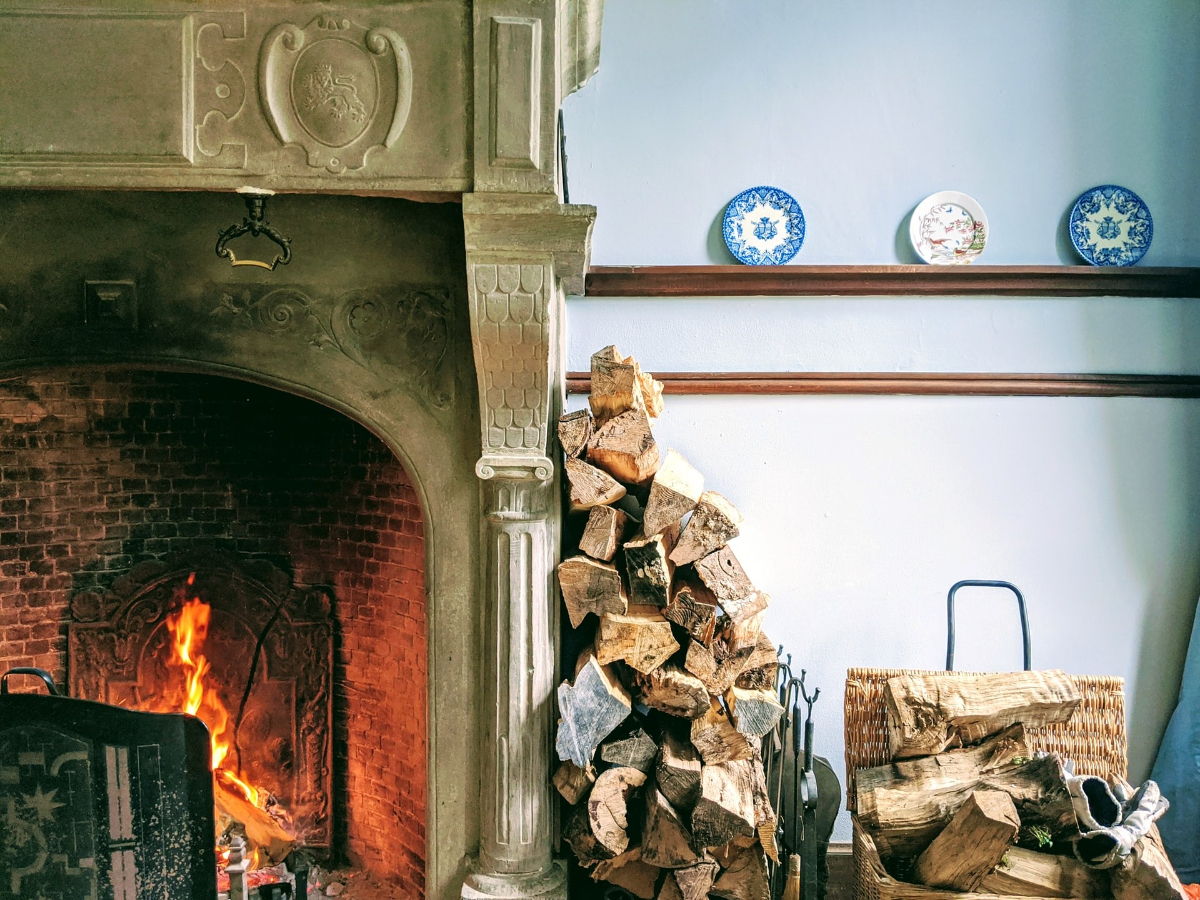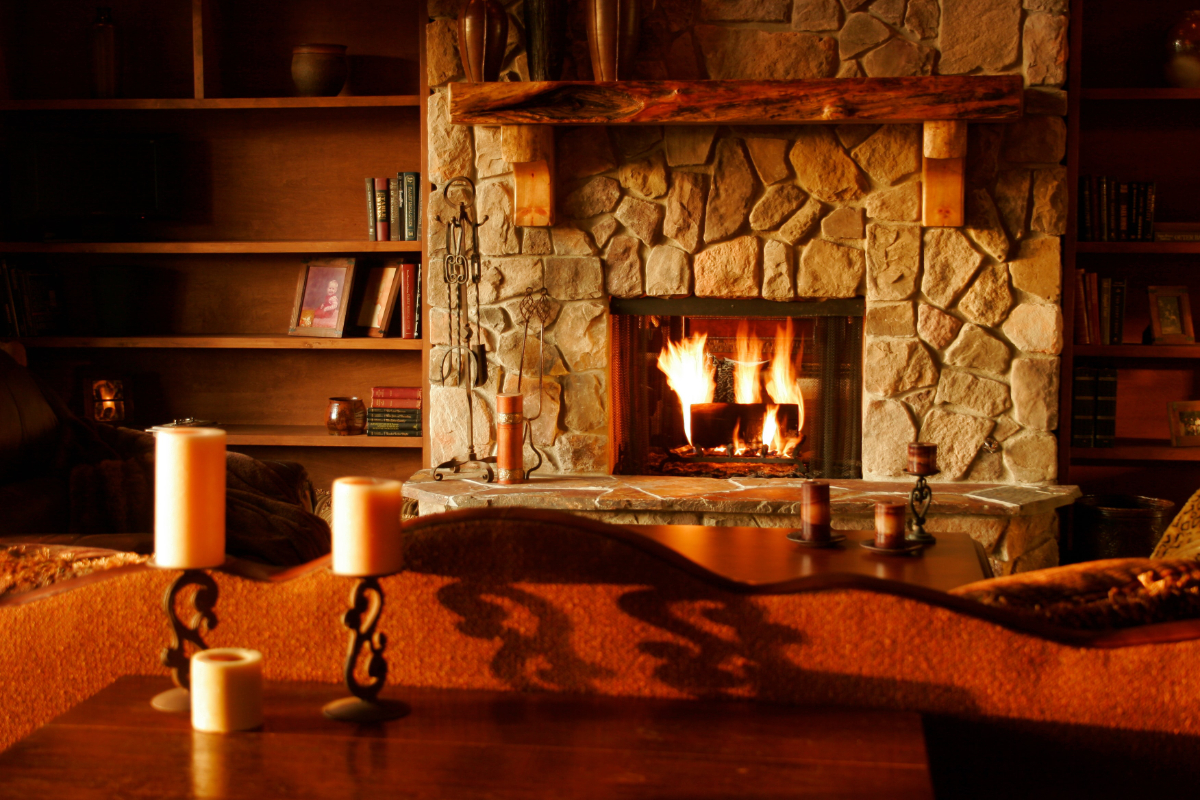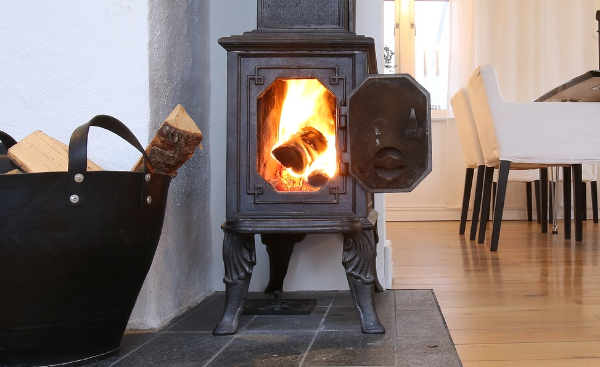What Qualifications Does a Fireplace Installer Need?
This article looks at who can install a fireplace chimney. We look at what qualifications a fireplace installer needs. Find out who can install your chimney.
Installing a new fireplace in your home requires a professional tradesperson. They ensure the task is undertaken correctly and safely and that all aspects remain in line with relevant building regulations.
This article covers the qualifications that are legal requirements for fireplace installers in the UK, ensuring hired labour is trusted, and you receive great value for your money. Some fireplaces or similar combustion appliances may require a more specific skill set.
New gas fires require a gas-safe registered engineer to install the gas appliances while complying with property regulations.
Professional gas engineers will have either completed an apprenticeship process or undertaken a fast-track learning programme to legally and safely carry out gas works in houses or other residences.
Commonly entering an apprenticeship is the favoured route, with online programmes a relatively new option. Some of the common qualifications gas engineers take include;
- CPA1: Combustion Performance Analysis.
- CCN1: Core Domestic Gas Safety.
- CKR1: Domestic Gas Cookers.
- CENWAT: Domestic Gas Central Heating, Boilers, and Water Heaters.
- HTR1: Domestic Gas Fires and Wall Heaters.
To ensure the new fireplace works properly and mitigates risk, you should choose an installer who retains one or more of these qualifications.
What's more, the engineer and their whole team should be a member of the Accredited Certification Scheme (ACS), guaranteeing all works are completed legally and by a competent person.
Different types of fireplaces may require some electrical work to be carried out, for example, the solid fuel appliances may require wiring into the house electrical circuit. To check if an engineer is properly qualified request their NICEIC registration number and ID card.
.jpg)
Is it illegal to fit a fireplace yourself?
Although many people enjoy attempting various DIY renovations and home improvements themselves, some things are best left to the professionals. Installing fireplaces can be a difficult task, and if done wrong, you could end up with gas leaking into the home, burdensome maintenance, roof damages, poor chimney ventilation and more.
Moreover, older properties increase the difficulty. Wood-burning stoves can be legally installed by yourself, although it's the cheaper option, don't expect it to be easy. On the contrary, gas fireplaces must be installed by a professional to abide by the laws and regulations.
Registered bodies for a fireplace installer
Before hiring an engineer, or appliance installer, you should inspect their qualifications to see what skills they retain, guaranteeing they have the ability to install a new stove or fireplace safely.
To further reduce worry, research the registered bodies noted below, these companies provide qualifications and provide registration from tradespeople. The UK has five key registrative bodies in the fireplace installation field, these include The Gas Safe Register, HETAS, OFTEC, NACS, and Registered Competent Person (Electrical).
Gas Safe Register
As gas fires are the most popular type of fireplace in the UK you may have heard of the Gas Safe Register or its predecessor CORGI.
Essentially, this branch of the Health and Safety Executive (HSE) comprises a list of all the legally registered gas-safe engineers in the UK. This comprehensive list makes finding a trusted and qualified tradesperson much easier, assuring with the job will be completed correctly and safely.
Engineers must hold the valid qualification Registered Competent Person (Electrical), to undertake gas works on behalf of a Gas Safe registered business. Home improvement companies can only become registered if at least one team member holds the correct qualifications.
Periodic inspections should be carried out to ensure all gas engineers are following the company's installation standards, planning permissions and legal requirements.
If any complaints have been made against a Gas Safe registered company in regards to the Gas Safety (Installation and Use) Regulations 1998, these will be investigated by the Gas Safe register. Complaints concerning Building regulations in England and Wales will also be dealt with by the Gas Safety Register.
Moreover, the register also deals with complaints made about works carried out by unregistered businesses or gas installers who have left a job incomplete or dangerously installed an appliance.
Unregistered gas fitters can cause numerous dangers, from leakages and blockages of toxic fumes, to just a poorly finished job. The Health and Safety Executive further investigates reports regarding unregistered workers.

HETAS – Heating Equipment Testing and Approvals Scheme
HETA is a regulatory body that approves various solid fuel appliances, installers, engineers, fuels and chimney sweeps. Additionally, in collaboration with the Solid Fuel Association, they offer a registration scheme for heating engineers that specialise in solid fuel heating system installation and maintenance.
Under this scheme, a wide variety of installations are covered, including heating systems, hot water, appliances with boilers, dry appliances and solid mineral, wood and biomass appliances. What's more, the HETAS provides various training processes to up-skill approved installers, ensuring they remain reputable and provide efficient labour.
Installing a solid fuel-burning appliance by yourself, or hiring a non-HETAS registered installer is legally acceptable. Though you must inform the local Building Control bureau before work begins if this is the case.
After the project is completed, Building Control will inspect the work to confirm it meets the legal standards. Building Control must be paid for their time spent, so remember to consider this under your set budget for the installation project.
OFTEC – Oil Firing Technical Association
The UK's cooking and heating industries are represented by the national body, OFTEC. This group ensure the quality of businesses in these industries, fostering the highest standards for engineers, technicians and businesses alike.
OFTEC also works alongside the UKAS accredited registration schemes, for instance, the important competent person scheme.
Members of the OFTEC scheme must be able to demonstrate they are highly competent and can comply with building regulations and rules, whilst following factory installation guidance.
What's more, OFTEC carries out regular inspections to guarantee all registrants are updated with regulations and provide high performance throughout all houses worked on.
NACS – National Association of Chimney Sweeps
Most houses with existing fireplaces have chimneys, they allow fumes to vent through the opening to be released to the outside.
You may need to get the chimney inspected, and the chimney swept, installing a new fireplace. It's recommended you contact an experienced chimney sweep to clean the chimney breast of coal build ups and other dirt.
Chimney-related works should be completed by a certified and qualified chimney sweep registered with the National Association of Chimney Sweeps (NACS). Additionally, registered chimney sweeps are divided into three types; the members, master members and master chimney sweeps, each with greater abilities than the previous.
Though more skilled workers will have more expensive costs, they'll provide a higher quality of work that is often worth the greater cost.
Quotes and deals offered by tradespeople should be looked at in conjunction with their ability and previous works before choosing one company. Further training schemes are run by NACS to ensure chimney sweeps meet requirements and customers receive great service and high-quality results.
Registered Competent Person Electrical
Any person working with electrical systems is required to retain a Registered Competent Person Electrical mark badge. If fitting a fireplace requires contact with the house's electrical wiring, the tradesperson, or company, must be able to provide proof of certification to the customer.
Various Competent Persons Scheme Operators provide important information on the certificate, the ways to achieve electrical competency, as well as registering individuals or companies.
A registered competent person will also have received authorisation from the UK Government to self-certify that their work complies with all building regulations and requirements.
Registered electricians will be examined to ensure they meet the required expectations, depending if these are met or not, highlights the need for top-up training.

How to open up a fireplace
When you decide to redecorate your home, there are a variety of options, from opening a new fireplace to knocking through walls in order to create a bigger space and open-plan living. It's common for most home improvements to increase the value of the houses built, so when the time comes to sell, the buyer will be willing to pay greater amounts.
Opening up a fireplace can add a lot of style to any place, creating a characterful, conversational, practical and important aspect. Remove the fireplace cover and you may find stunning marble designs or other types of original and classic quirks not seen for years.
If the entire chimney is blocked off, removing it yourself can cause various problems. Check how difficult the task will be, and if it's simply too big of a job, contact a trusted professional to avoid reversible issues and ensure the fireplace remains in good condition.
Cost of opening up a fireplace
So how much does it cost to safely open up a fireplace? Well, numerous factors affect the starting price, including the type of stove, size and measurements, where it's located in the house, surrounding features, materials or stone used, and ease of access, amongst other things.
The way the old fireplace was boarded up will impact the way it's removed; for instance, a simple plyboard can be removed yourself, whilst more complex covers could see parts of the original fireplace removed.
On occasion, parts of the old surround or insert may remain, whilst other times the entire chimney flue system could have been closed in with a brick. Expectantly you'll pay less for easier openings.
Flue systems ensure carbon monoxide, and smoke is diverted from the fireplace out the roof, these must be working efficiently before installing a new fireplace, or using a newly opened fireplace. New flu liners roughly cost around £150 to £250 for a six-foot liner, though this depends on the supplier and the quality of the liner.
If you're planning to remove chimney breasts or add a new non-combustible hearth, these must comply with the necessary building regulations. To install a new appliance or an open fire, the chimney requires lining, this prevents smoke from contaminating the air in your home.
If the flue liners are too cold or of an inadequate height, it can allow for downdraught, moreover, trees or buildings can overshadow the flue causing smoke to be blown into the room.
Removal of a fireplace roughly takes a day, depending on varying factors. The cleaning and installation of a new liner can take another day.
Average daily costs for a professional and qualified tradesperson are around £150 to £250. Although hiring a professional may cost you more initially, it will save you money in the long term. Gather project quotes from different tradespeople to compare prices and select the best option.
Do you have a period fireplace which needs repair or restoration? If you live in the Hastings and East Sussex area, our expert antique fireplace restoration services can help.
